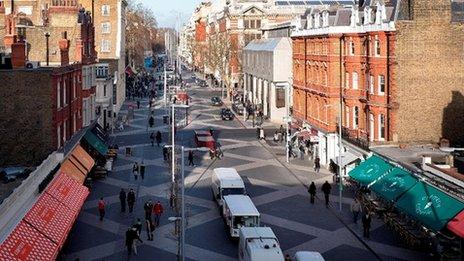Halt city 'shared spaces', says report by Lord Holmes
- Published
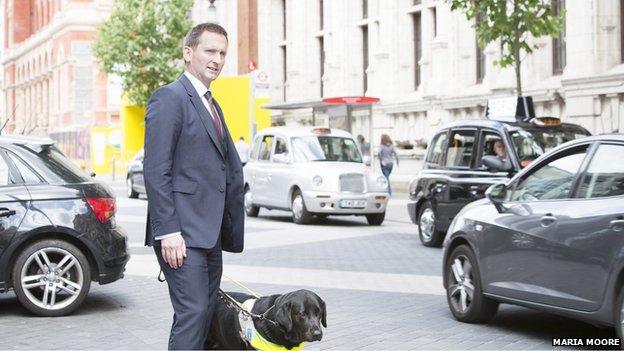
Lord Holmes' report is critical of the concept of "shared spaces"
Plans for further "shared spaces" for drivers and pedestrians in urban areas should be put on hold, a report says.
Shared spaces try to make drivers take more care by removing traffic signs, pedestrian crossings and even kerbs.
Lord Holmes of Richmond commissioned a survey of 600 people which suggested that 63% rated their experience of shared spaces as poor.
Lord Holmes said he hoped the study would change attitudes to "these dangerous and costly planning follies".
The report also found more than a third actively avoided shared spaces and there was a significant under-reporting of accidents in such areas.
'Traffic free-for-alls'
Former Paralympian Lord Holmes, who is blind, said: "An immediate moratorium on all shared space is absolutely essential. I hope that this survey will act as a wake-up call to all involved in these dangerous and costly planning follies.
"Town centres are being turned into dangerous third-world traffic free-for-alls. Shared space is not a safe place, overzealous councils are risking public safety for aesthetics and the result is confusion, chaos, unnecessary cost and catastrophe."
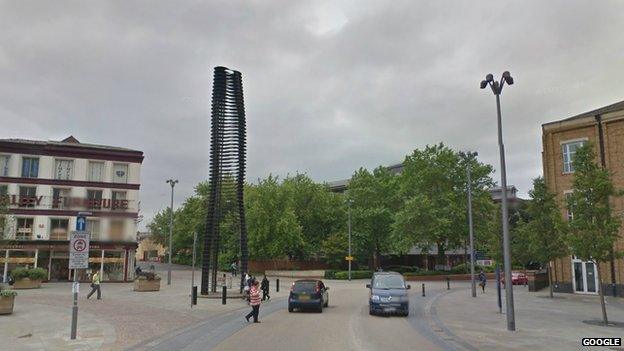
Shared spaces, such as this one in Gloucester, have been criticised for increasing the chance of accidents
There is no single definition of a shared space but the Department for Transport (DfT) considers it as "a street or place designed to improve pedestrian movement and comfort by reducing the dominance of motor vehicles and enabling all users to share the space rather than follow the clearly defined rules implied by more conventional designs".
Lord Holmes believes the results of the survey clearly demonstrate that these schemes do not "improve pedestrian movement and comfort" and "enable all users to share the space".
The reports recommends:
An immediate moratorium on shared space schemes while impact assessments are conducted
An urgent need for accessibility audits of all shared space schemes and a central record of accident data including "courtesy crossings", which must be defined and monitored
That the Department for Transport (DfT) must update its guidance so that local authorities better understand their responsibilities under the Equalities Act
Shared spaces are also facing a legal challenge, with solicitor Chris Fry from Unity Law is representing five visually impaired people who are suing the local authorities responsible for their local shared spaces.
He said: "They are taking action against their local authorities because pedestrian crossings have been removed from their shared spaces. The idea is that pedestrians will make eye contact with drivers and that will lead to greater safety.
"But the visually impaired cannot do that and local authorities are in breach of their duty as service providers under the Equality Act to make reasonable adjustments to the shared space."
A DfT spokesperson said: "It is for local authorities to assess the suitability of introducing a shared space scheme on their roads.
"As part of this we expect them to take into account the needs of the whole community, particularly disabled people."
- Published23 December 2014
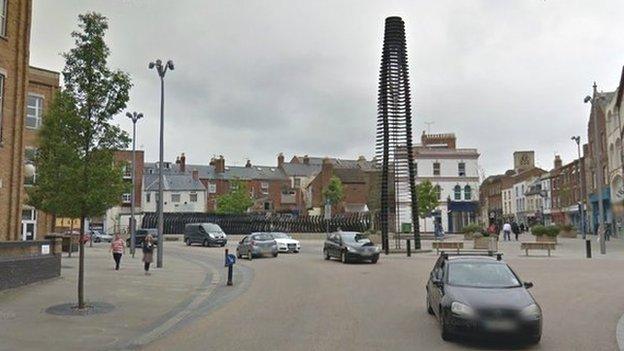
- Published21 April 2015
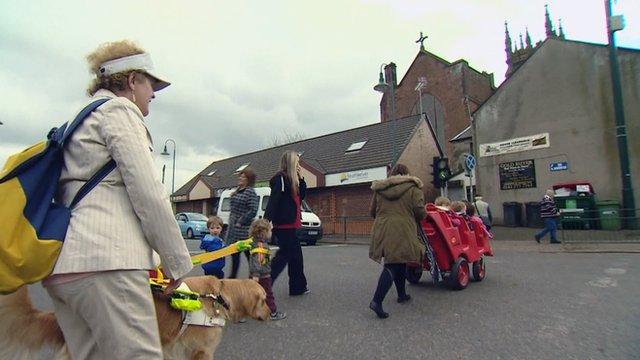
- Published1 February 2012
